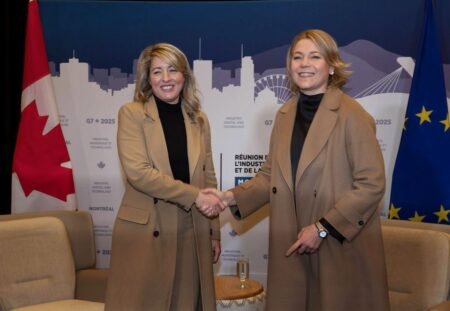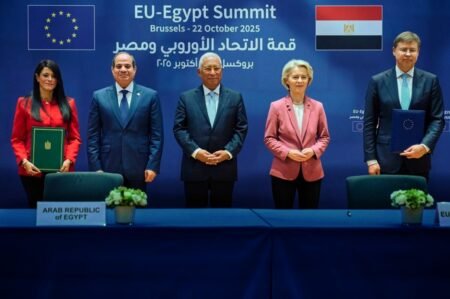(BRUSSELS) – The Commission announced Thursday results of a 2023 call for proposals amounting to EUR 1,031m of EU funding to support 54 joint European defence research and development projects.
The projects selected under the European Defence Fund will support technological excellence across a wide range of defence capabilities in critical areas, including cyber defence, ground, air and naval combat, protection of space-based assets or Chemical, Biological, Radiological and Nuclear (CBRN) defence. They will contribute to the EU’s capability priorities, like better situational awareness to ensure access to space, and to technologies for a future main battle tank.
The MARTE and FMBTech projects, for example, will bring together more than 70 industrial players and research organisations to work on the design and systems for the main battle tank platform to be used across Europe.
They will also support strategic air transportation of outsized cargo, which is a core capability for rapid support to missions worldwide. For example, in continuity with the previously funded JEY-CUAS project, E-CUAS will bring together 24 beneficiaries from 12 Member States and Norway to advance defence technologies countering unmanned aerial systems, such as drones.
In the land capabilities domain, building on the results developed under the European Defence Industrial Development Programme, project SRB2 will improve on a novel suspension system for heavy armoured vehicles. EDC2 will result in a prototype of the European patrol corvette, based on an initial design developed under EDF calls of 2021. The TALOS-TWO research project, with 19 participants from 8 countries, will bring forward European excellence in the area of laser-based directed energy weapons.
Under the EU Defence Innovation Scheme (EUDIS) of the EDF programme, SMEs, start-ups, and new entrants to the defence sector tapped into a number of opportunities provided in the 2023 EDF funding round. For the first time, 4 projects will support the transfer of civil innovation to defence. In addition, the MaJoR project will combine technology development with a short-term technical and financial support to up to 60 start-ups and SMEs during the implementation phase, providing them simpler and easier access to the programme.
Strong and growing interest of EU defence industry and research organisations is reflected in:
- Strong interest from EU industry: 236 proposals received by diverse consortia, encompassing large industries, SMEs, midcaps and Research and Technology organisations, and covering all calls and topics published.
- Wide geographical coverage: 581 legal entities from 26 EU Member States and Norway participate in the selected proposals.
- Wide cooperation within projects: on average, selected proposals involve 17 entities from 8 countries.
- Strong involvement of Small and Medium-sized Enterprises (SMEs): SMEs represent over 42% of all entities in selected proposals receiving more than 18% of the total requested EU funding.
- Good balance between research and capability development actions: 265 million to fund 30 research projects and 766 million to fund 24 capability development projects.
- Support for disruptive technologies for defence: 4% of the budget dedicated to funding game-changing ideas that will bring innovation to radically change the concepts and conduct of defence projects.
- Balanced support for strategic defence capabilities and new, promising technology solutions.
- Consistency with other EU defence initiatives: through the EU Strategic Compass, EU capability priorities, and Permanent Structured Cooperation (PESCO), with 14 of the selected development proposals linked to PESCO.
The Commission will now enter into grant agreement preparation with the consortia behind the selected proposals. The grant agreements will be signed before the end of the year and the projects will kick off the cooperation.
Overview factsheet and individual project factsheets per selected proposal
Factsheet of the 2023 European Defence Fund Work Programme and Calls







